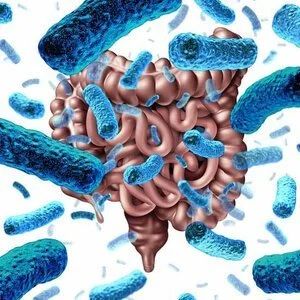Why Do I Always Have Bad Skin?
Introduction to skin conditions
Skin complaints are an extremely common complaint in general practice.
Common skin conditions we get to see include eczema (dermatitis), acne, fungal infections (athlete’s foot, fungal intertrigo), and psoriasis, to name a few.
Typically, we prescribe various creams, antibiotics, antifungals, or a referral to see a dermatologist if things don’t get better.
However, anyone who has ever suffered from any skin condition knows sometimes more creams, more antibiotics or antifungals from a specialist are literally only scratching the surface, as they don’t work.
So, where do you go from here?
Before we answer that question, it is worth understanding the basics of skin.
What is Skin?
The skin is actually the body’s largest organ, comprised of water, proteins, fats, minerals and vitamins.
It is made up of three layers, namely epidermis (top layer), dermis (middle layer) and hypodermis (bottom layer).
Interestingly, the skin and gut are formed from similar tissues due to the way the embryo develops.
You might have heard the phrase gut-skin connection to affirm this.
Dr Todd LePine said it best when he mentioned on Dr Hyman’s Podcast (The Doctors Farmacy) that the gut is a continuation of the skin inside out.
You can already start to see how addressing the gut might help with skin issues, but I am running ahead of myself.
What Causes Bad Skin?
As we have mentioned in the previous section, the gut and skin are closely related.
This means, in reality, most skin conditions are just symptoms of a deeper problem which is the gut, more specifically the microbiome.
The microbiome is the name given to the vast community of bacteria, fungi and protozoa present in the gastrointestinal tract and skin which play a vital role in digestion among other things.
So, the question now changes from what causes bad skin to what can disrupt the microbiome?
Simply put, the answer will fall under one of the following categories:
Poor diet/nutrition, infection, toxins (pollution, harmful chemicals etc), allergens, and stress.
Find out how to fix your bad skin
Book a gut health consultation with Dr. Leke, one of the UK’s leading gut health experts. Or if you have questions before booking, you can schedule a free 30-minute call first.
How Do I Fix My Bad Skin?
Some conditions are relatively straightforward.
If your newborn develops a rash after formula, then milk might just be the culprit.
If you were to develop a rash on your face after applying makeup, a rash on your wrist or neck after wearing a new bangle or necklace, then you are suffering from contact dermatitis.
Simply removing the offending items resolves the problem.
However, with the more difficult cases, we need to dig deeper.
As a functional medicine doctor, this is what I enjoy doing.
This involves going through a thorough history to elicit potential clues leading to your bad skin.
In straightforward cases, it could simply be a dietary issue.
The usual suspects are processed foods, usually made with refined grains, laden with sugar, refined vegetable oils, preservatives, artificial colourings, emulsifiers and much more.
These foods cause gut inflammation, leading to a cascade of other issues upstream.
An anti-inflammatory diet is thus ideal.
As mentioned above, one would have to dig deep to uncover clues like prolonged courses of antibiotics in the past, that could lead to small intestinal bacterial overgrowth (SIBO) or fungal infections, past holidays in high-risk areas leading to gut parasites, lead or other heavy metal toxicity from living in highly polluted areas, stress from interpersonal relationships or working a stressful job.
In most cases, some form of testing will help with targeted treatment, usually a stool or breath test.
It is worth mentioning that the stool test mentioned is not your standard NHS test which is severely limited.
I am alluding to comprehensive stools tests based on polymerase chain reaction (PCR) technology.
These tests provide a detailed picture of your microbiome, revealing information like the proportions of each type of bacteria present as well as parasites, markers of inflammation, gut permeability, and much more.
Depending on your stool test results, you can then set out on a personalised treatment plan.
Last but not least, lifestyle advice is key, especially if stress is a contributing factor.
Simple actions like spending enough time outdoors to get fresh air and sunlight, outdoor walks preferably in nature, regular exercise and meditation are highly effective.
How Do I Take Care of My Skin
Having said all the above, remember your skin is made up of water, proteins, fats, minerals and vitamins.
This means proper hydration, as well as using the right type of soap and moisturiser will make a difference.
Some supplements like collagen as well as vitamins like B3 are great for the skin too!
Conclusion
The skin is the body’s largest organ, comprised of water, proteins, fats, minerals and vitamins.
Most skin conditions are really just symptoms of deeper problems in the gut microbiome, investigated via a thorough history.
A breath or PCR stool test is sometimes needed to help shed more light on the underlying cause.
Successful treatment of skin conditions involves a change in diet and lifestyle, as well as a tailored supplement regime.
Please share this article with anyone you know might benefit, and if you have any questions, please feel free to get in touch.
Thank you!
Dr. L Asong
About the Author
Dr. Leke is an NHS GP and Functional Medicine Doctor with deep expertise in gut health. His approach emphasises the relationship between the gut and overall wellness.
More from my gut health blog…











